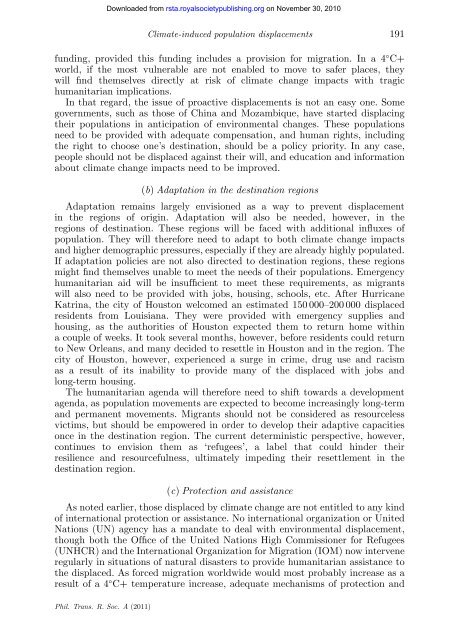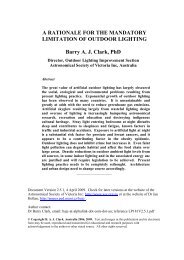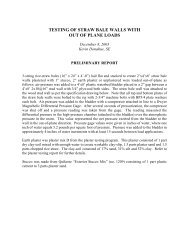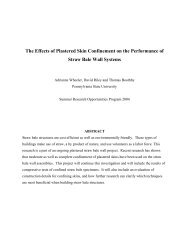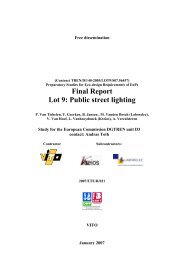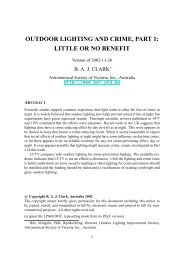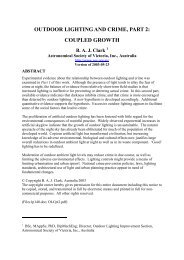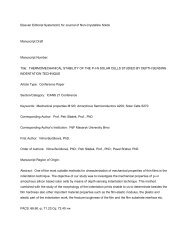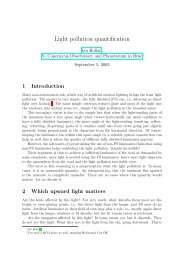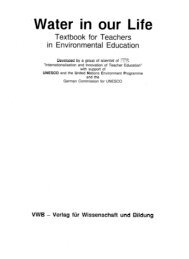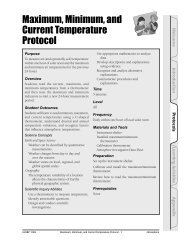Four degrees and beyond: the potential for a global ... - Amper
Four degrees and beyond: the potential for a global ... - Amper
Four degrees and beyond: the potential for a global ... - Amper
Create successful ePaper yourself
Turn your PDF publications into a flip-book with our unique Google optimized e-Paper software.
Climate-induced population displacements 191<br />
funding, provided this funding includes a provision <strong>for</strong> migration. In a 4 ◦ C+<br />
world, if <strong>the</strong> most vulnerable are not enabled to move to safer places, <strong>the</strong>y<br />
will find <strong>the</strong>mselves directly at risk of climate change impacts with tragic<br />
humanitarian implications.<br />
In that regard, <strong>the</strong> issue of proactive displacements is not an easy one. Some<br />
governments, such as those of China <strong>and</strong> Mozambique, have started displacing<br />
<strong>the</strong>ir populations in anticipation of environmental changes. These populations<br />
need to be provided with adequate compensation, <strong>and</strong> human rights, including<br />
<strong>the</strong> right to choose one’s destination, should be a policy priority. In any case,<br />
people should not be displaced against <strong>the</strong>ir will, <strong>and</strong> education <strong>and</strong> in<strong>for</strong>mation<br />
about climate change impacts need to be improved.<br />
(b) Adaptation in <strong>the</strong> destination regions<br />
Adaptation remains largely envisioned as a way to prevent displacement<br />
in <strong>the</strong> regions of origin. Adaptation will also be needed, however, in <strong>the</strong><br />
regions of destination. These regions will be faced with additional influxes of<br />
population. They will <strong>the</strong>re<strong>for</strong>e need to adapt to both climate change impacts<br />
<strong>and</strong> higher demographic pressures, especially if <strong>the</strong>y are already highly populated.<br />
If adaptation policies are not also directed to destination regions, <strong>the</strong>se regions<br />
might find <strong>the</strong>mselves unable to meet <strong>the</strong> needs of <strong>the</strong>ir populations. Emergency<br />
humanitarian aid will be insufficient to meet <strong>the</strong>se requirements, as migrants<br />
will also need to be provided with jobs, housing, schools, etc. After Hurricane<br />
Katrina, <strong>the</strong> city of Houston welcomed an estimated 150 000–200 000 displaced<br />
residents from Louisiana. They were provided with emergency supplies <strong>and</strong><br />
housing, as <strong>the</strong> authorities of Houston expected <strong>the</strong>m to return home within<br />
a couple of weeks. It took several months, however, be<strong>for</strong>e residents could return<br />
to New Orleans, <strong>and</strong> many decided to resettle in Houston <strong>and</strong> in <strong>the</strong> region. The<br />
city of Houston, however, experienced a surge in crime, drug use <strong>and</strong> racism<br />
as a result of its inability to provide many of <strong>the</strong> displaced with jobs <strong>and</strong><br />
long-term housing.<br />
The humanitarian agenda will <strong>the</strong>re<strong>for</strong>e need to shift towards a development<br />
agenda, as population movements are expected to become increasingly long-term<br />
<strong>and</strong> permanent movements. Migrants should not be considered as resourceless<br />
victims, but should be empowered in order to develop <strong>the</strong>ir adaptive capacities<br />
once in <strong>the</strong> destination region. The current deterministic perspective, however,<br />
continues to envision <strong>the</strong>m as ‘refugees’, a label that could hinder <strong>the</strong>ir<br />
resilience <strong>and</strong> resourcefulness, ultimately impeding <strong>the</strong>ir resettlement in <strong>the</strong><br />
destination region.<br />
(c) Protection <strong>and</strong> assistance<br />
As noted earlier, those displaced by climate change are not entitled to any kind<br />
of international protection or assistance. No international organization or United<br />
Nations (UN) agency has a m<strong>and</strong>ate to deal with environmental displacement,<br />
though both <strong>the</strong> Office of <strong>the</strong> United Nations High Commissioner <strong>for</strong> Refugees<br />
(UNHCR) <strong>and</strong> <strong>the</strong> International Organization <strong>for</strong> Migration (IOM) now intervene<br />
regularly in situations of natural disasters to provide humanitarian assistance to<br />
<strong>the</strong> displaced. As <strong>for</strong>ced migration worldwide would most probably increase as a<br />
result of a 4◦C+ temperature increase, adequate mechanisms of protection <strong>and</strong><br />
Phil. Trans. R. Soc. A (2011)<br />
Downloaded from<br />
rsta.royalsocietypublishing.org on November 30, 2010


